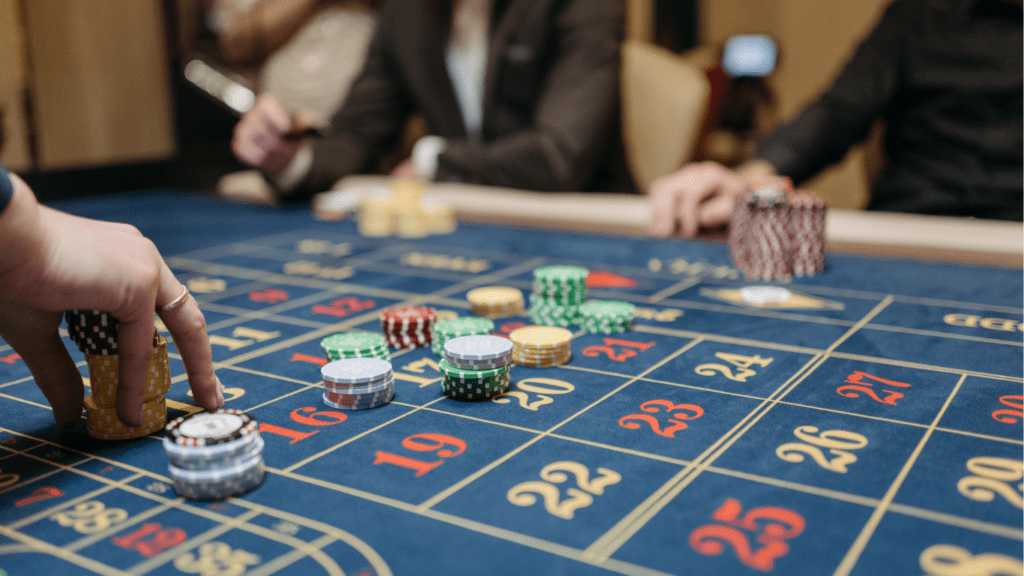The Importance of Understanding Odds
Grasping the concept of casino odds transforms betting from a game of chance to a strategic endeavor. Odds provide the numerical expression of a game’s probability and, consequently, influence potential payouts. Misunderstanding these elements can lead to unintended losses, especially for casual players hoping for a quick win.
Recognizing the types of odds—fractional, decimal, and moneyline—clarifies various games. Fractional odds, like 5/1, show the profit relative to the stake. Decimal odds, such as 6.0, denote total return, including the original stake. Moneyline odds, expressed as +500 or -200, indicate potential profit or the amount needed to bet for a $100 return.
Interpreting odds accurately equips players with the ability to assess risk and reward during gameplay. For example, games with higher odds numbers suggest less probability of winning, hence offering larger payouts. Conversely, lower odds reflect higher winning probability but smaller returns.
Understanding odds empowers both strategy formulation and risk management. By analyzing odds critically, players can calculate expected value, which forecasts possible outcomes based on probability and payoff. This approach aids in spotting value bets, where the likelihood of winning surpasses the bookmaker’s risk calculation, maximizing potential gains.
Odds awareness leads to a more informed and enjoyable betting experience. It raises the stake from mere luck to an insight-driven activity, fostering a more fulfilling engagement with every game.
Types of Odds in Casino Betting
Understanding the various types of odds in casino betting is crucial for making informed decisions. Each format provides unique insights into the potential payouts and probabilities of different bets.
Fractional Odds
Fractional odds, common in the UK, represent the potential profit relative to the stake. For example, odds of 5/1 mean I could win $5 for every $1 bet. The numerator indicates potential profit, while the denominator shows the stake amount.
Decimal Odds
Used mainly in Europe, decimal odds reflect the total payout rather than just the profit. With odds of 6.0, my total return from a $1 bet would be $6, including the original stake. These odds simplify calculations, making it easier to compare potential returns across various bets.
Moneyline Odds
Popular in the US, moneyline odds denote how much I need to bet to win $100 (negative odds) or how much I’d win from a $100 bet (positive odds). A -200 moneyline indicates I must wager $200 for a $100 profit, while +200 means a $100 bet yields a $200 profit. This format directly ties potential winnings to the stake size.
How Odds Affect Your Betting Strategy

Understanding odds is pivotal in crafting a successful betting strategy. These odds shape potential returns and influence risk assessment.
Calculating Potential Payouts
Calculating potential payouts begins with converting odds to understand what a win promises. With fractional odds, I divide the numerator by the denominator and multiply by my stake for the potential profit. Decimal odds require multiplying the stake by the odds to get the total payout, including the original stake. Moneyline odds determine the amount needed to wager for a $100 profit or the profit from a $100 stake, depending on whether the odds are positive or negative. Knowledge of these calculations helps me predict outcomes and make informed bets.
Assessing Risk and Probability
Evaluating risk and probability helps in determining whether a bet aligns with my strategy. A lower risk implies higher odds of winning but smaller payouts, typical in bets close to even-money odds. Conversely, high-risk bets with higher payouts often come with longer odds. By interpreting these odds, I gauge the likelihood of success against potential gains, refining my betting choices. Understanding this balance is crucial in minimizing losses and maximizing expected value.
Common Misconceptions About Odds
Several misconceptions about casino odds often mislead players. Understanding these can improve decision-making in betting.
- Odds Influence by Luck: Many believe odds are mere expressions of luck. In reality, odds quantify probability and potential payouts, not luck or fate. They’re a mathematical reflection of risk and outcomes.
- Higher Odds Equal More Wins: Some assume higher odds guarantee more frequent wins. This isn’t true. Higher odds often suggest a lower probability of winning, even though potential payouts might be larger.
- The House Always Wins: While the house does have an edge, odds aren’t rigged in its favor for every single bet. Players can enhance their chances by identifying value bets through odds analysis.
- Odds Never Change: Odds fluctuate based on several factors, including betting patterns and new information. Assuming they remain constant overlooks potential strategic opportunities.
- Complex Odds Are Unbeatable: Complex odds might seem daunting but understanding their structure enables informed betting. They offer insights into the likelihood of outcomes and potential rewards.
Clarifying these misconceptions empowers players to approach betting strategically, leveraging odds to their advantage.
Expert Tips for Betting Smarter
- Master Probability Calculations: Probability lies at the heart of betting strategies. Understanding how odds correlate with probability helps in making educated betting choices. For instance, with decimal odds of 3.00, the implied probability is 33.33%. This means I assess whether the actual chance of winning favors my bet over the given odds.
- Embrace Bankroll Management: Smart betting requires effective bankroll management. I allocate a set budget for gaming activities and avoid gambling more than I can afford to lose. This approach not only minimizes risk but also prevents emotional decision-making during intense gaming sessions.
- Research Game Rules and Strategies: Familiarity with game rules and potential strategies can improve betting outcomes. Whether it’s blackjack, poker, or roulette, understanding each game’s nuances helps me make logical, sound bets, rather than relying solely on luck.
- Utilize Statistical Analysis: Analyzing past games and trends offers insights into future outcomes. For instance, when betting on sports, I review teams’ historical performances, injury reports, and other relevant data. This analytical approach enhances my ability to find value in odds.
- Identify Value Bets: Value bets arise when odds underestimate an outcome’s probability. By thoroughly analyzing odds and comparing them to my assessment, I single out opportunities where the expected value tilts in my favor, thus maximizing potential returns.



 Wayne Myers played a pivotal role in shaping Gamble Dynasty Wins by offering invaluable insights into the betting industry. With his keen understanding of market trends and a strategic approach, Wayne helped craft content and features that cater to both seasoned bettors and newcomers, enhancing the platform’s impact.
Wayne Myers played a pivotal role in shaping Gamble Dynasty Wins by offering invaluable insights into the betting industry. With his keen understanding of market trends and a strategic approach, Wayne helped craft content and features that cater to both seasoned bettors and newcomers, enhancing the platform’s impact.